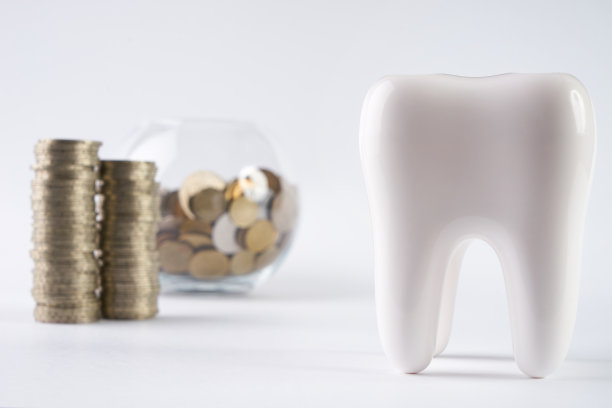Summary: Undergoing a dental filling procedure is a significant step towards maintaining optimal oral health. However, it is essential to consider several important precautions beforehand. This article explores four critical aspects to ensure the procedure is effective and safe: understanding the types of materials used, assessing any allergies or sensitivities, considering your dental health history, and choosing a qualified dental professional. Each of these factors plays a vital role in determining the success of the filling and your overall oral well-being. By being informed and prepared, you can enhance the outcome of your dental procedure and minimize potential complications.
1. Understanding Types of Filling Materials

Dental fillings come in various materials, including composite resin, amalgam, glass ionomer, and gold. Each material has its unique properties and suitability for different dental conditions. Composite resin is popular for its aesthetic appeal, matching the natural color of teeth, making it ideal for visible areas.
Amalgam, made from a mixture of metals, is known for its strength and durability, making it suitable for molars that undergo significant pressure from chewing. Glass ionomer is less durable but offers the benefit of releasing fluoride, which can help protect the tooth from further decay.
It is essential to discuss with your dentist which material will best suit your needs. Understanding the pros and cons of each filling material can help you make an informed decision that aligns with your oral health goals.
2. Assessing Allergies and Sensitivities
Before undergoing a dental filling procedure, assessing any allergies or sensitivities is crucial. Some patients may have adverse reactions to certain materials used in fillings, particularly with amalgam containing mercury. Informing your dentist about any known allergies ensures that the chosen material will not pose a risk to your health.
In addition to allergies, some individuals may experience sensitivity to dental anesthetics or specific dental products. Dentists can provide alternatives or adjust their approaches to accommodate these sensitivities, ensuring a more comfortable experience during the procedure.
Conducting a thorough health assessment before proceeding with dental fillings allows for a personalized and safer treatment plan, reducing the risk of complications and ensuring optimal oral health outcomes.
3. Considering Dental Health History
Your dental health history plays a critical role in how you approach dental fillings. Previous dental treatments, such as root canals or crowns, may influence the recommendation for fillings. A comprehensive understanding of your dental history helps your dentist assess the risks and possible complications associated with the filling procedure.
If you have a history of frequent cavities, discussing preventive measures with your dentist can enhance oral health. They may recommend fluoride treatments or sealants as additional protective measures alongside fillings.
Furthermore, informing your dentist about any underlying health conditions, such as diabetes or heart disease, is essential as these can impact your dental treatment plan. Overall, considering your dental health history ensures you receive the most effective and individualized care during your dental filling procedure.
4. Choosing a Qualified Dental Professional
Choosing the right dental professional is paramount to the success of your filling procedure. Researching qualified dentists with a good reputation in restorative dentistry can significantly affect the outcome of your treatment. Look for dentists with appropriate certifications and experience in performing fillings.
It is advisable to schedule a consultation to discuss your concerns, ask about the materials they use, and understand their approach to treatment. A qualified dentist should communicate clearly, ensuring that you feel comfortable and informed about the procedure.
Furthermore, patient reviews and testimonials can provide valuable insight into the dentist鈥檚 skill and bedside manner, influencing your choice. A qualified dental professional will not only provide a successful filling but also address your overall oral health needs.
Summary:
Considering these important precautions can enhance your overall dental experience and ensure optimal oral health. By understanding the types of materials used, assessing allergies, considering your dental history, and selecting a qualified dental professional, you are better equipped for a successful dental filling procedure. Knowledge and preparation are your best allies in achieving lasting oral health and a beautiful smile.
This article is compiled by Vickong Dental and the content is for reference only.
Vickong Dental
Vickong Dental is a large medical group established in Hong Kong in 2008 by professors from well-known medical universities in Guangdong and Hong Kong, as well as medical doctors from key national '985' universities (including Master's supervisors and senior professors). The chain of branches brings together expert dentists with PhDs and Master's degrees from Hong Kong and Mainland China, committed to providing high-quality dental treatment.
"Vickong Dental Practices the University Motto of 'Healing and Serving Society,' with a Stable Operation for Sixteen Years. It Has Been honored with Hong Kong Enterprise Leaders's Choice,' and is a Global Trusted Implant Center for the Nobel Implant System. Recommended by Hong Kong Metro Broadcast and Guangdong Television, it Serves Customers from Over Thirty Countries and Regions, Gaining the Trust and Favor of Citizens from the Guangdong-Hong Kong-Macau Greater Bay Area and Surrounding Cities.

Thousands of customers' unanimous praise
The most recognized and highly recommended dental service by customers in the Guangdong-Hong Kong-Macau Greater Bay Area
We Ensure You Receive Detailed Care and Attention Here
Hong Kong standards, Shenzhen prices, Your Trusted English-speaking dentists

Vickong Dental Medical-Grade Instrument Disinfection Process
Vickong Dental Medical-Grade Instrument Disinfection Process

Vickong Dental Chain: A Warm and Comfortable Environment for Treatment






Appointment Hours

Q&A
Why choose Vickong Dental?
Vickong Dental practices the university motto 「Medicine to Benefit Society」, with each branch bringing together highly qualified dentists with doctoral and master’s degrees from Hong Kong and the Mainland, and has maintained seventeen years of steady operation。Recipient of 「2024 Hong Kong Enterprise Leaders Brand」, 「2025 Hong Kong Enterprise Leaders Brand」, a Nobel Biocare Global Trusted Implant Center, and a brand recommended by Metro Radio Hong Kong and Guangdong TV。
To date, we have served customers from more than thirty countries and regions,earning exceptionally high word-of-mouth recognition and trusted recommendations from residents across the Guangdong-Hong Kong-Macao Greater Bay Area and surrounding cities
We have eight major branches in Zhuhai、Shenzhen,and a consultation and service assurance center in Hong Kong,so you can book a free consultation at any time for any questions,which is very reassuring.
If I do not accept the quotation after the CT scan, will I be charged??
No! As long as the actual treatment has not started, you will not be charged any fees.
Will there be any additional charges during the treatment process?
No, there won’t be any additional charges. Before treatment begins, we will clearly explain the treatment plan and its corresponding fees. Only after the patient agrees and signs the consent form will we proceed with the dental service.
Can I pay in Hong Kong dollars?
Yes. Vickong Dental accepts payment in Hong Kong dollars. The amount will be converted based on the exchange rate of the day, and the applicable rate will be clearly communicated to you in advance.
Can I reschedule my appointment at any time?
Yes. Please contact us via **WeChat** or **WhatsApp** as early as possible, providing your original appointment time and details, along with your preferred new date and time slot for rescheduling.













